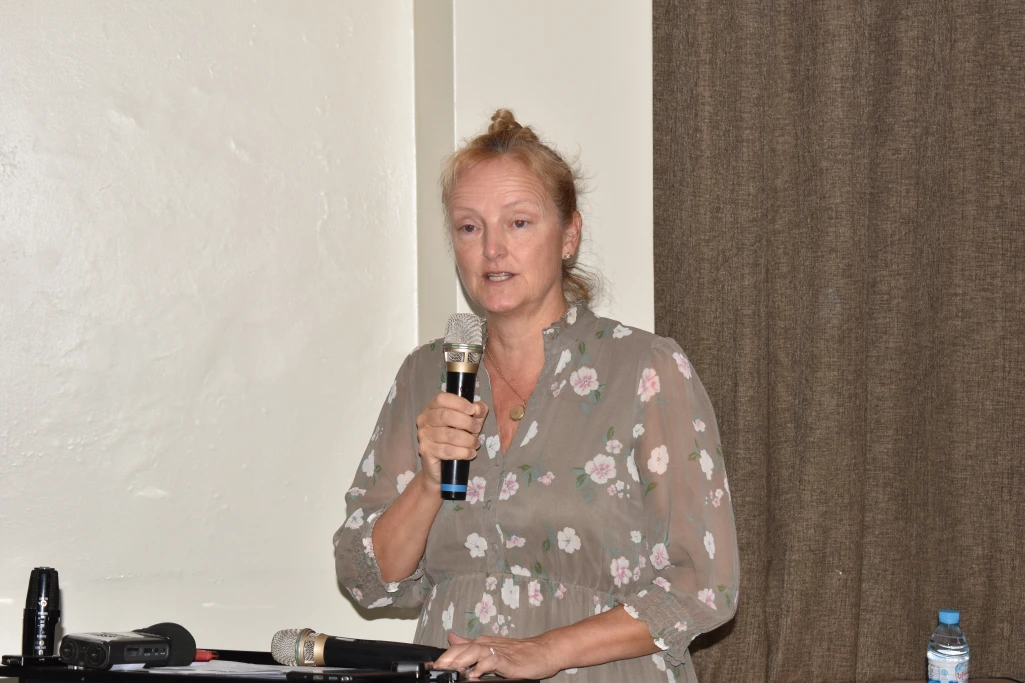
A diplomat has urged South Sudanese to respect the sanctity of their laws if democracy is to flourish in Africa’s newest nation.
The Ambassador of the Kingdom of Netherlands said democracy can not prevail in the absence of good systems.
Ambassador Marjan Schippers made the remarks during the celebration of the International Day for Democracy in Juba on Thursday.
The day serves as an opportunity to assess the state of democracies in the world. It also gives a chance to highlight the crucial role of parliaments and to celebrate their capability to deliver justice, development, human rights, and peace
“Democracy is listening to one another, it is allowing every human being to be free and feel part of the society, participate and feel well represented,” Ambassador Marjan stated.
The constitution of South Sudan establishes the country on the foundation for a united, peaceful and prosperous society based on justice, equality, respect for human rights and the rule of law;
It also commits South Sudan to establish a decentralized democratic multi-party system of governance in which power shall be peacefully transferred and to upholding values of human dignity and equal rights and duties of men and women.
However, several human rights groups described South Sudan as a country with government-perpetrated extrajudicial killings, including ethnically based targeted killings of civilians; forced disappearances; torture; arbitrary detention of civilians and journalists; harsh and life-threatening prison conditions; political prisoners; widespread rape of civilians.
This year, the International Democracy Day is dedicated to the importance of media freedom to democracy, peace and delivering on sustainable development goals.
“…free independent pluralistic media [is] able to keep the public informed on matters of public interest,” she underscored.
Ambassador reaffirmed the role of media in enhancing transparency and accountable, and helping the government deliver on its mandate to South Sudanese.
Under the interim constitution, citizens have the right to access public information and records held by state entities. But observers say these rights are not respected in practice by the government, which is hostile to scrutiny and lacks functional capacity. This is notably true for oil revenue, which accounts for a majority of the government’s receipts. A 2020 UN report stated that natural resources were illicitly extracted due to non-transparent management.
For his part, the Chairperson of the South Sudan Human Rights Commission called for freedom of association, including political participation.
Ben Gideon said South Sudan should open up its civic space to allow citizens to express themselves on issues that matter to the country.
South Sudan is rated Not Free in Freedom in the World 2022, Freedom House’s annual study of political rights and civil liberties worldwide.
The report says – recently – authorities launched a crackdown ahead of nationwide protests planned for August 30 by the People’s Coalition for Civil Action (PCCA). Activists were arrested ahead of the protests.
It mentioned that the government of South Sudan and legislature lack electoral legitimacy and are unable to exercise control over the country’s territory.
The report further notes that the 2018 peace agreement delayed overdue national elections, instituting an uneasy power-sharing arrangement among political elites who have presided over rampant corruption, economic collapse, and atrocities against civilians, journalists, and aid workers.
It stated that the SPLM dominates the political landscape, and most competition takes place within the movement, which splintered at the outbreak of the civil war.